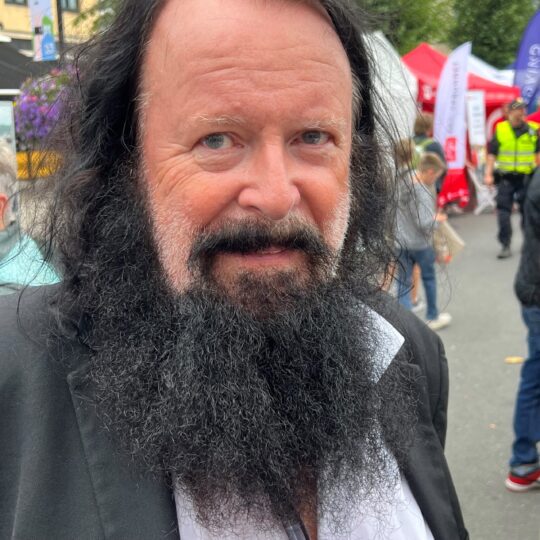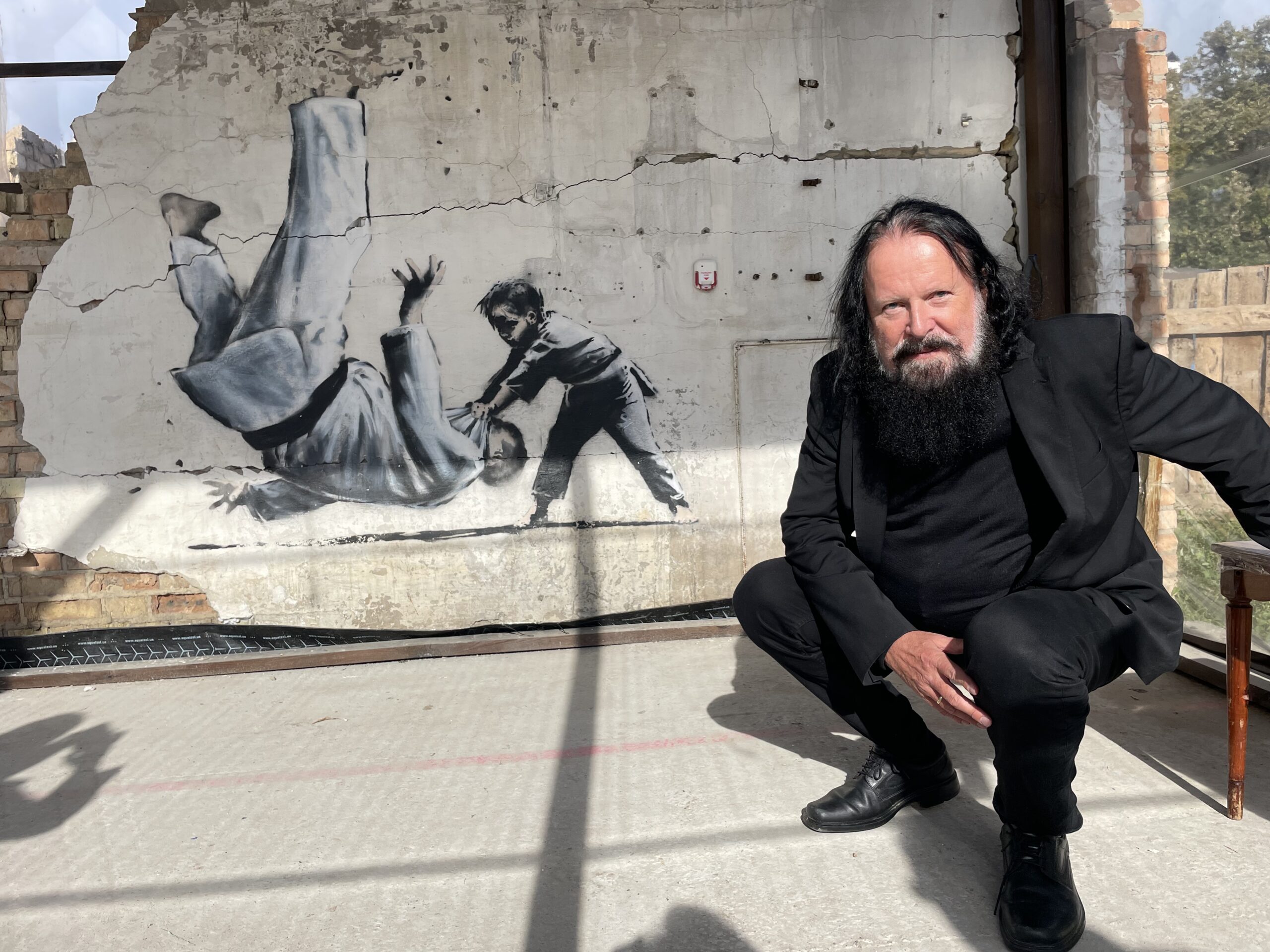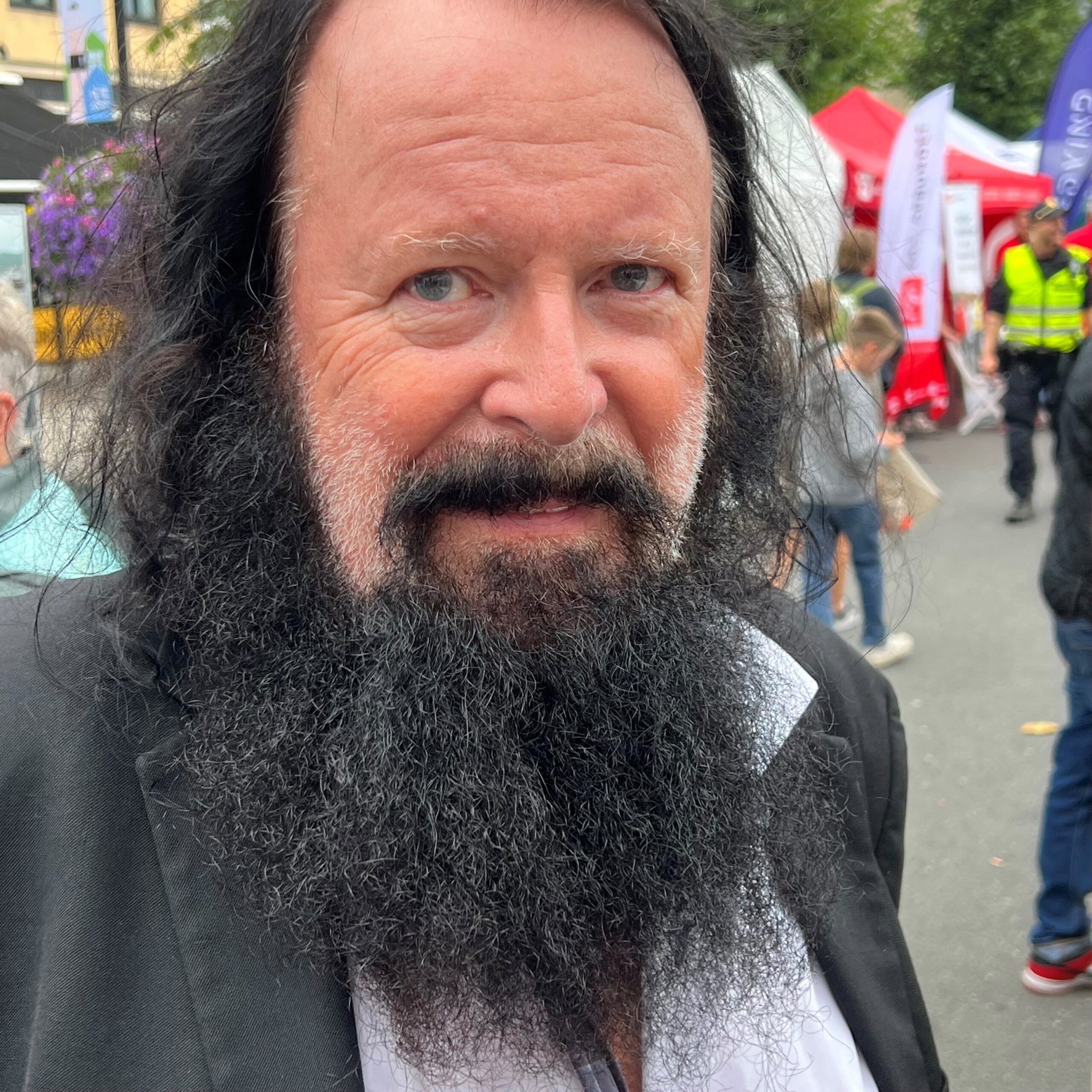
Steinar Bryn: Report from a visit to Kyiv

We, in the U.S. and Europe, strongly support the Ukrainian people’s right to self-defense and self-determination. I have, in the spirit of Nansen, asked if the current way we are helping Ukraine is the best way to support the building of peace, democracy, and European integration. Standing on the Nansen platform, the question is whether the consequence of the war works against the very aims mentioned. What follows are short comments based on interviews, visits, and a lecture at the School for Ministers, organized by the Institute for the Future. I talked with and listened to NGO workers, frontline soldiers and relatives of frontline soldiers, old politicians, community organizers and old friends. The war has lasted for almost ten years, time is long overdue for taking a closer look at the consequences of this war for the Ukrainian people.
THE MAIN DOMINATING NARRATIVE
The dominant narrative is that the aggressive full-scale war has united Ukraine more than ever in an anti-Russian stand. Putin miscalculated and overestimated a potential division between the Ukrainian people, and instead of gaining power based on this perceived division the invasion had the opposite consequence. Russia is infected by the «imperial bug» and Ukrainians agree on a united front against everything Russian, including the Russian language. The brutality of the invasion, particularly in places like Bucha, shocked the part of the population with pro-Russian sympathies.
In this first narrative, negotiations are completely out of the discussion. When Putin’s goal is to eliminate Ukraine, Zelenskyj can’t compromise. They do not think Ukraine has lost more because they are defending themselves, not resisting would have been a much higher price to pay. Ukrainians express a high level of tolerance for the war itself. What I see as catastrophic for the Ukrainian society, they see as a historical necessity. Wars come and go with a certain regularity. Even active peace workers believe Ukraine will win the war. As one said, this is the only way I can return home. This means a strong internal pressure on Zelensky, he can’t give concessions now, and he cannot give in. That would make all the sacrifices meaningless. In addition, he has promised the Ukrainian people that they will win the war. If he doesn’t keep that promise, he will lose the power. And thereafter loose his position in the history books.
THE SECOND ALTERNATIVE NARRATIVE

The second alternative narrative emphasizes that Ukraine has always been a multiethnic and multi-linguistic state where Russian and Ukrainian languages lived side by side, and was part of peoples upbringing – and therefore – should not become monolingual. A woman from Bakhmut illustrates this narrative. She was a pro-Russian political party member of the municipal board. Her party is now forbidden. I asked her; what do you hate the most with Russia. She answered the fact that they have ruined my life. She also was leading an NGO working on bridgebuilding. Bakhmut is simply destroyed. No Bakhmut anymore. Then she adds; But why must Ukraine take my language (language = the childhood, atmosphere, and culture of her upbringing) away? She was a highly educated lawyer. She has lost the trust that Ukraine could be a country where Ukrainian speakers and Russian speakers could live together again side by side. Now when she sees no future in Ukraine, she wants to go to Italy.
Undoubtedly the first narrative dominates the media not only in Ukraine, but in the whole Western world, and the second is simply denied by some, and hard to present by anyone without being accused of being pro-Russian. The second narrative separates the current “Russian” political and military attack from the fact that parts of Ukraine have lived in a closer relationship with the neighbor country and developed a more Ukrainian-Russian culture. Such cross-border cultures are a common phenomenon in many European countries, This narrative argues that there is a difference between the current Russian political and military attack and the Ukrainian-Russian culture that has deeper cultural roots and as such cannot be held responsible for the invasion. This second narrative is spoken silently and quiet.
The obvious dilemma is the big gap between the two narratives. The first narrative describes the second almost as a vanishing group, while the second narrative stress their stronger presence (example claiming that 35% of the children speak Russian as their major language).
THE UKRAINIANS MUST DECIDE THEMSELVES WHAT THEY WANT.
The clearest insight I got is the problematic aspects of this statement. Norwegian politicians repeatedly underline the importance of allowing the Ukrainians to decide their future, particularly regarding whether to push for negotiations or continue the war of defense. Ukraine never wanted this war in the first place, and now they are trapped inside the war, and many feel that the best way to keep up the fighting spirit is to reinforce the belief that they eventually will win the war.
What is harder to understand is the strong “Western” emphasis that it is the Ukrainians themselves that decide they want to continue the war. The war has lasted for 20 months, which has caused so much damage to Ukrainian society that it becomes confusing if the Ukrainians alone are held responsible for this war of defense. This is in so many ways a joint operation, we therefore should also share the responsibility for the consequences.
One comment I gave in Kyiv that created reactions was «Maybe you can get more out of negotiations than from keeping the war going». They responded like this was a new way of thinking about negotiations. To negotiate was for them equal to give up territory, not to gain something. Analyses have been written about Pashinyan and Zelenskyj, Why did Pashinyan send young soldiers to the frontline when he later settled for a deal which ultimately made most Armenians feel he gave up? To settle for negotiations now would be a dishonor to all the young men who have sacrificed their lives. To decide you must have options. Zelenskyj doesn’t feel he has a choice.
We should also reflect more on whether a decision that has such a strong influence on other countries in the world should be left to Ukraine alone. To share in decision-making also means sharing responsibility for the consequences of the decision. It is argued that Norway’s primary goal (together with the Western coalition) is to prevent WWIII, and that responsibility overshadows any responsibility for Ukraine.
Finally, is a country caught up in war at risk of losing the horizon view and consequently making a wrong decision in that situation?
Could we ask when NATO, the US, EU, and China are as involved as they are, they could put stronger pressure on Russia and Ukraine to start condition less negotiations. Maybe such pressure would lead nowhere since both countries say they do not want to negotiate, but maybe it would lead to long negotiations that could produce new ways of thinking. And it could improve the communication between China and the US. What will be the consequences for Ukraine and the supporting countries if this war goes on till the unforeseeable future and becomes a frozen conflict?
THE DEVASTATING CONSEQUENCES OF THE WAR
The importance of stopping the war becomes clearer when we speak to soldiers and their wives. The soldiers are completely worn out after too long time at the frontline. Nobody asks them if they want to continue the war. There is an obvious need for more rotation and more breaks for the soldiers. There is too much corruption in the different divisions. Money is given to the commandant but doesn’t trickle down to the soldiers. NGOs are working with healing families destroyed by the war.
The Institute for the Future invited me to give a lecture to the School of Ministers. I had to prepare a talk to people with strong political experience and political ambitions. I was warned to not say this, to not say that. But they asked questions like «What advice would you give to Zelenskyj» – and I answered honestly. I felt that they lacked the experience of long conversations about alternative options and they appreciated this opportunity. I seriously think the international community is too afraid of confronting the Ukrainian way of thinking. And I question whether Zelenskyj is giving a truthful picture of the international support to the Ukrainian people.
My advice to Zelenskyj would be to encourage negotiations sooner rather than later since the European support is fading, and the U.S. support is depending on the outcome of the election in the U.S. This is particularly risky for Ukraine. It can also be argued that the longer negotiations are postponed, the less Ukraine get to say in the final outcome. We are very clear that international pressure is needed on Israel and Hamas. The same international pressure is needed on Russia and Ukraine. But the precondition as mentioned before is the agreement between the U.S. and China that they must stop this war. The accumulated effect of killed soldiers and civilians, the amount of refugees, which has passed 10 million when we include IDPs and the refugees to Russia, the environmental destruction, the destruction of families and the increasing development of war traumas are working contradictory to the aims of the war; the building of a democratic society with self-determination and high probability of Western integration.
Steinar Bryn, Nansenskolen
